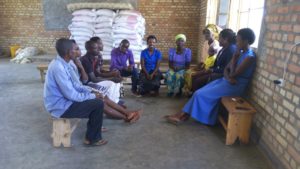One of the aspects of surviving a conflict or a natural disaster is the enduring legacy of trauma. Beyond the loss and shock, there is a sense of bracing yourself for the next unpleasant surprise. This is why counselling and sharing is so important.
Network for Africa recently completed a six-month pilot project offering psychotherapy counselling to young Rwandan genocide survivors, many of whom were orphaned and are dealing with the enormous responsibility of caring for their surviving family members. Those being counselled had an average age of 28 (the genocide was in 1994, but there has been little support for survivors in this profoundly poor country).
We interviewed the cohort at the start of the project, and again when it ended, in an attempt to measure the impact of our project. At the start, only 6% of the young survivors reported feeling positive about their lives, but by the end, 62% felt optimistic. This result is remarkable, given the cohort’s early experiences witnessing the murder of their families, often coping with homelessness and being forced to drop out of school to earn a living ever since the genocide ended.
When the Rwandan survivors were worked with were asked at the beginning of the project about how they were functioning in everyday life and what plans they had for the future, few expressed any hope. By the end, however, there was a 57% improvement (the figures were arrived at by a standard measurement method employed by Network for Africa’s trained psychotherapists). More specifically, only 60% felt able to find work and hold down a job before accessing counselling; that rose to 88% by the end of the pilot project.
In the course of individual interviews, young people described the aspects of the counselling that helped them the most, telling us that they regularly use the coping skills and strategies taught to them by Network for Africa: breathing exercises, visualizing a safe place, reflecting on the positive aspects of their life, writing down their problems and then burning the piece of paper, listening to music, finding peace and quiet on a walk, in the garden, or being with animals. In particular, they reported opening their hearts and minds to “feel the healing light”, drawing strength from talking to counsellors and other survivors about their experiences, as well as from prayer.
We now hope to raise sufficient funds to build on the pilot project, scaling-up to reach a total of 3,200 people. Please consider supporting our work in Rwanda, Uganda and Sierra Leone.
Please donate by clicking on the donate button to the right.
Thank you!
